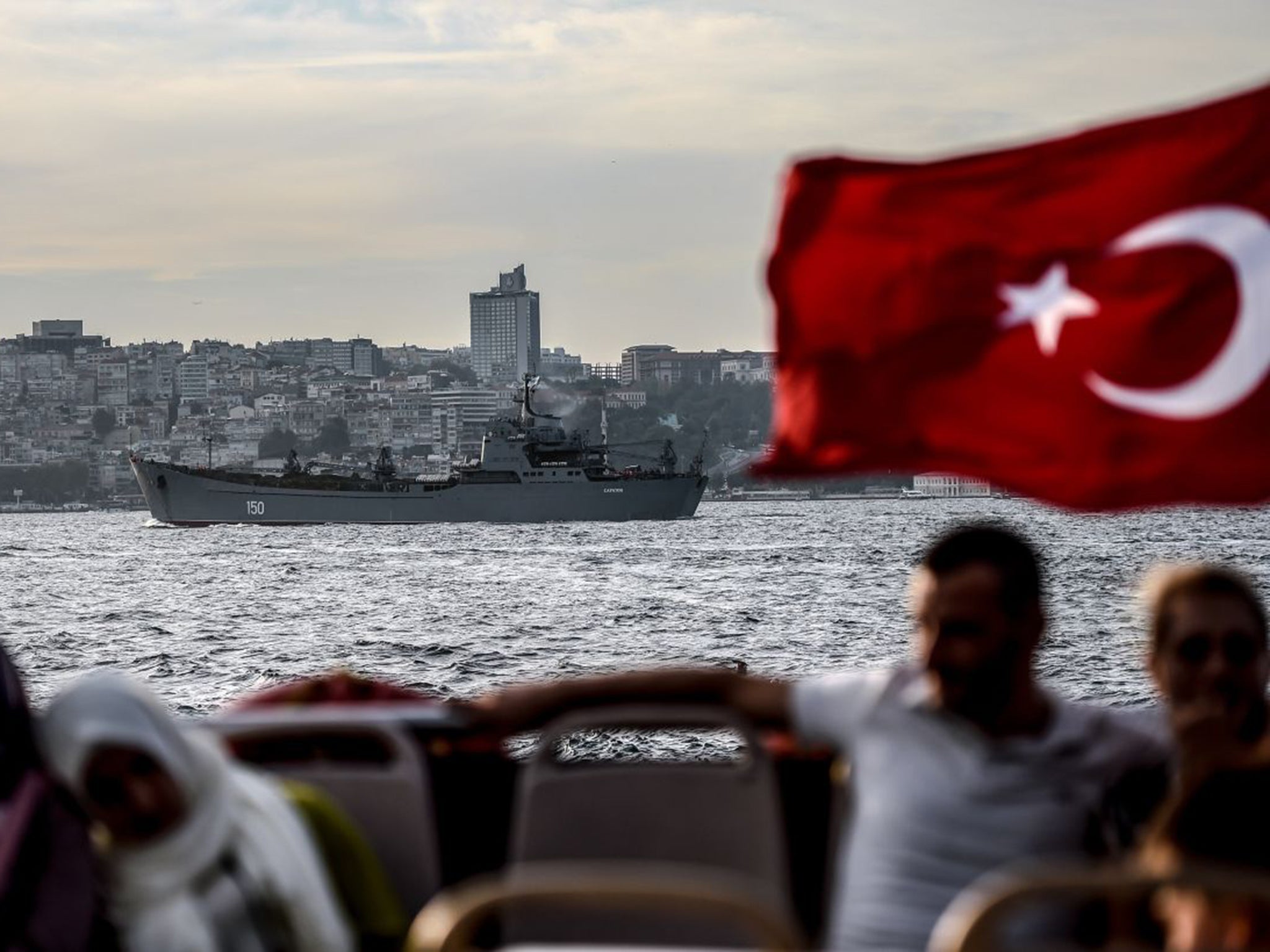Turkey is not part of Europe – as the history of our continent shows
The question of Turkey in Europe had been treated by the West as a matter of strategy and not culture

Valéry Giscard D’Estaing was the first to say it frankly in 2002: Turkey must never be a member of the European Union. It was not a matter of time, of Turkey’s adjusting to the political culture of Europe, of economic or legal harmonisation. For Giscard, never meant never, because Turkey is not a European country. To admit this huge Muslim, non-European state, he said, would mean the end of the EU.
An outbreak of such candour from a major European politician remains rare, almost unique. Other leaders had committed themselves in principle to Turkey’s accession, but seemed to hope that if they kept quiet, it might be forgotten about, or that something might turn up to prevent it. They certainly were not eager to bring the idea strongly before their electorates. This may help to explain why so few people in this country are aware that it is, and has long been, the policy of the present Conservative government, and previous Labour governments, to support Turkey’s admission.
Someone else was as frank as Giscard and, in 2004, said that were Turkey to join the European Union this would represent the triumph of economics over culture. The speaker was Cardinal Joseph Ratzinger, the future Pope Benedict XVI. For him, that “culture” certainly included Europe’s Christian inheritance.
For years the question of Turkey in Europe had been treated by the West – and especially the Americans – as purely a matter of strategy and not of culture at all. Turkey could help in the invasion of Iraq; it was a friend of Israel; it was a secular Muslim state. Indeed, it hanged one prime minister and deposed two governments for not being secular enough.
The Balkans were part of the Ottoman Empire, the forced dissolution of which has left a legacy of problems we face today. Why not draw in Turkey, the heart of the Ottoman Empire, so anchoring the Balkans both in modern Europe and its historic past? We would also be reconstituting something that seemed very desirable at the time: a democratic, secularised part of the Muslim world, which could offer a bridge to the Muslim Middle East.
The trouble with basing the arguments for Turkey’s admission on particular strategies of foreign policy is that circumstances change. Turkey no longer looks so shiningly like a democratic, secular state, but more like an Islamising one with an Ottoman nostalgia. The “moderation” of its avowedly Islamist government is beginning to look like a mask that may soon be thrown off. Like Saudi Arabia, it does not scruple to co-operate with religious fanatics in bringing down the secular regime in Syria.
The Turkish question is a more radical version of the problem that has long occupied British Eurosceptics, and that can derail the dreams of those who seek “ever closer union”. How can there be a common sense of citizenship and allegiance among the citizens of the EU where (unlike in the US) there is no common language, where there is such cultural diversity, and where the particular political and legal traditions of one country – the United Kingdom – differ so greatly from those of so many of the others?
It was a question raised by Rousseau when he distinguished between a “master”, who commands servants, and a true political leader, whose authority derives from a genuine political community. Eurosceptics have always been convinced that Brussels is too much of a bureaucratic master.
To adapt the words of Charles de Gaulle, we do have a certain idea of Europe. It may be fuzzy at the edges, but it has something to do with the Roman Empire, something to do with Latinity and Hellas and all that we inherit from both of those, and something to do with Christianity and its own mediation of Latin and Greek culture, the heritage of Israel. Then there is the Renaissance, the scientific revolution – all the ways in which Europe made modernity. Even the European wars of religion, the conflict between Lutheranism and Catholicism, the Reformation and Counter-Reformation have shaped a common experience and even, paradoxically, a sense of how we can come together.
However shakily, European history – not to mention geography – does give some content to a European ideal. But this is not at all what the rulers of the European Union believe. The only part of European history that seems alive to them is the two world wars.
The determination to avoid future European war is admirably at the heart of the whole project, but a fear of war is not enough to support a political union. Some shared cultural and historical experience is necessary. So what do the Europhiles set against that? Jack Straw put it succinctly when he was Foreign Secretary: “A community of values.”
That sounds alright until you think about it – and then it means nothing at all, or something fairly objectionable. A free nation does not insist upon a community of values. For at least 100 years, France was divided between Catholics and secularists, Royalists and republicans. Yet they were all French and knew they were French. You can be British whether you are a believer in the divine right of kings, or a communist, an ultramontane Catholic, a Muslim or a Jehovah’s Witness. A shared culture and history can actually give us more freedom than the current fashionable insistence on a community of values.
Europe detached from history, culture and geography becomes indefinitely expansible, subject to imperial overstretch and a candidate for eventual implosion.
Join our commenting forum
Join thought-provoking conversations, follow other Independent readers and see their replies
Comments
Bookmark popover
Removed from bookmarks